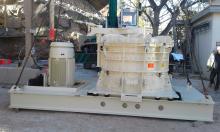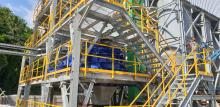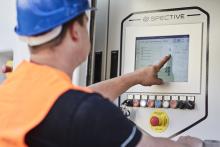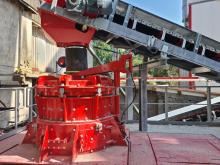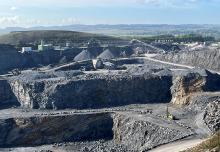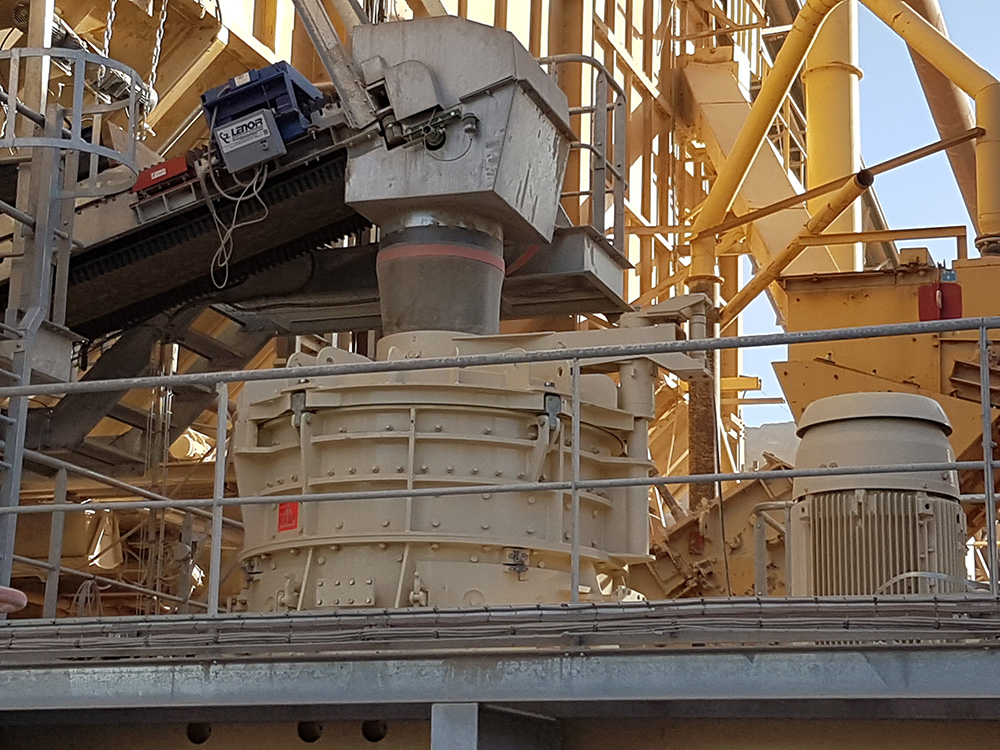
The CMSE-Carrière de Saint-Colombe quarry near Perpignan on the south-east coast of France processes materials including non-abrasive medium-hard limestone for the production of sand that is used in asphalt plants. It extracts a hard, finely crystallised limestone, whose colour varies between grey and pink. The quarry, located near the municipalities of Thuir and Sainte-Colombe, has been in operation for almost 50 years and originally belonged to Civale, a company specialising in the manufacture of dykes.
With a total area of 33 hectares and an exploitable area of 25 hectares, the quarry is one of the largest operations in the Pyrénées-Orientales department.
From 1979 the quarry, which was then called Roussillon Agrégats, began producing material for construction sites and hot asphalt plants. In 1992 the French Colas Group, a major international player in road construction, became the owner of the quarry and production facilities.
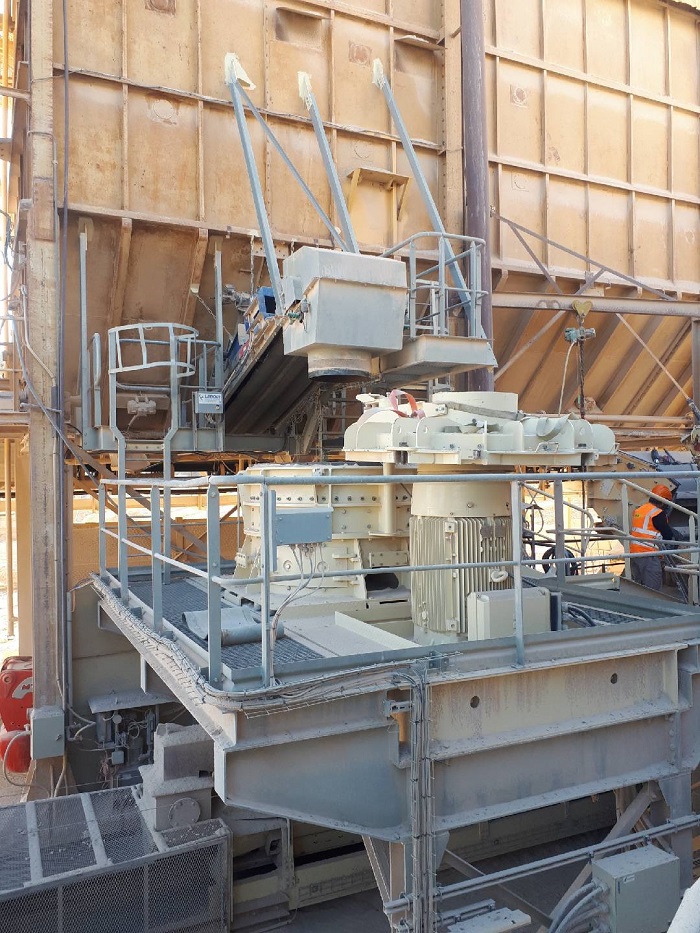
impact mill can crush all low to moderately abrasive minerals
CMSE Sainte-Colombe mainly produces aggregates for the large asphalt plant in Perpignan, and also supplies public works and building companies as well as towns and private individuals. Other products, such as compost and filler, are also produced and sold by the quarry.
To get the maximum from limestone at the quarry and produce more valuable fine sand, Colas Group is utilising a RPMF rotor impact mill from manufacturer BHS-Sonthofen.
The German company says its high-performance crushing technology helps Colas achieve high reduction ratio and excellent particle shape. The fine sand is used for asphalt production. Alexandre Bernabé, sales director for the French market at BHS-Sonthofen, says the use of the RPMF mill has enabled the value of the crushed sands to be significantly increased.
The CMSE quarry is equipped with a large jaw crusher as the primary crusher in aggregates production and mining operations. Subsequently, the grain size 0/250-300mm is crushed by a large secondary impact crusher. Various vertical shaft impact (VSI) and cone crushers are available for the tertiary crushing stage, and the primary contaminated materials are treated with quicklime using a different mixer. The whole plant operates in a dry circulation system without water. Additionally, different types and sizes of vibrating screens are used during the process.
BHS-Sonthofen says that no naturally formed rock is as versatile as limestone. When crushed down to a fine particle size, the material is particularly suitable as a component of asphalt mixtures. A few years ago, Colas Group researched how to extract even more valuable sand from the existing rock for its Perpignan asphalt production site.

In 1979, the CMSE quarry was equipped with a crushing plant that allowed the materials it produced to be used for construction.
Since taking over the quarry in the early nineties, Colas has made many investments into the technology used there. It employs big impact crushing machines that produce sands in different categories. In the course of time new technical options became available, some of which were provided through the crushing and screening consulting services of BHS-Sonthofen.
The sale and implementation of the BHS RPMF 1516 rotor impact mill at the site was preceded by extensive crushing tests at the BHS test centre in the Bavarian town of Sonthofen, to effectively meet the demands of the CMSE quarry.
To improve the material even further and get more valuable sand from the limestone, Colas decided to add another stage to the crushing process. “The target was to crush the non-valuable grain sizes of limestone 3/6mm and 6/12mm to produce fine sand with grain size 0/3mm in high quantity,” Colas comments.
For this crushing step, Colas turned to BHS-Sonthofen. “Together with the customer, we carried out several tests with the original material at the test centre in Sonthofen,” says Bernabé. “This helped us find out how the machine must be configured and what performance we can actually achieve with our crushing mill.”
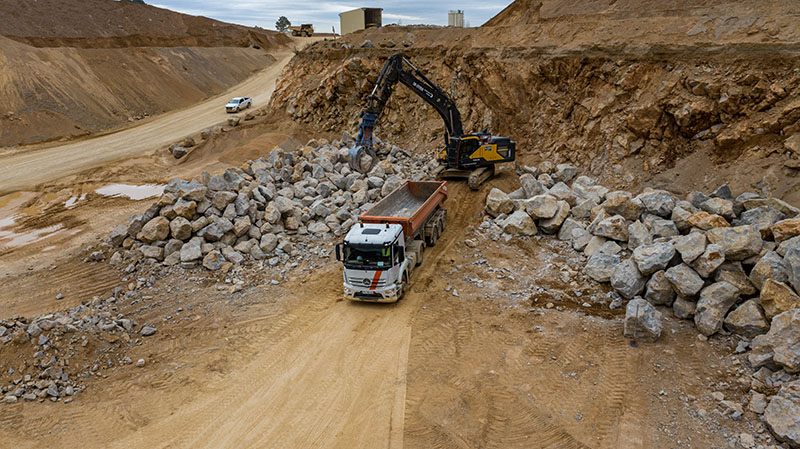
Colas opted for the RPMF 1516 rotor impact mill because of the machine’s unique operating principle. The high-performance crusher has a vertical shaft that is suitable for crushing all low to moderately abrasive minerals and is therefore used predominantly in the production of sand for the concrete, asphalt and dry mortar industries.
“The BHS RPMF 1516 specialises in producing a very fine sand of grain size 0-3mm, with large proportion of grains size of just 0-500µm and 0-1mm,” Bernabé states. “This sand is subsequently mixed with primary and secondary crushed sands to balance the base of the grain size distribution.”
BHS says the impeller rotor of the rotor impact mill is the only one of its kind worldwide. Due to the high circumferential speed of the rotor, there is an almost permanent gap between the tips of the horseshoe-shaped hammers and the anvil ring. The small gap width and the high energy input due to the circumferential speed result in a very high, targeted crushing ratio. Thanks to the narrower milling gap and the higher circumferential speed of the rotor, the material in the RPMF rotor impact mill is exposed to more intense stress. This distinguishes the RPMF, also called ‘the pulveriser’, from BHS-Sonthofen’s RPM rotor impact mill, which operates the same crushing principle.
“With its crushing principle, the RPMF really stands out from competition,” Bernabé says. “Besides particle shape, the high productivity in the manufacturing of fine materials was another main argument for Colas to choose this machine.
“Compared to other crushing technologies such as rotary mills, the ratio of tons and kilowatt is superior. For instance, we reach 50 tons per hour on average compared to 10-20 tons per hour with different technologies that consume much more power.” The rotor speed lies in the 80-90 m/s range.
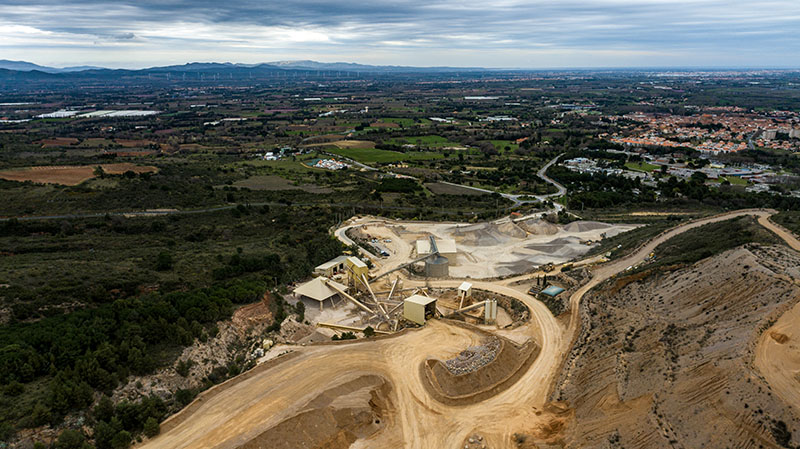
The RPMF 1516 is also designed to provide low and uniform wear, which is based on the reverse rotation of the rotor. Every week the operator changes the direction of rotation and, this way, a balance is achieved for all wear parts. With the effective dedusting system, operators can handle the wear of the machine easily.
BHS-Sonthofen says that, the result in percentage terms, is a higher proportion of fine sand. While grain size of the input material is 3/6mm and 6/12mm, the grain size of output is 0/3mm with a high share of grains smaller than 1mm.
“Production has been running for some time, as the machine was put into operation in December 2017,” says Bernabé. “The customer is very satisfied with the result and we are very pleased to have been able to help the Colas Group successfully implement this new crushing step.”
In terms of how he sees the future for the quarrying industry generally and the issues facing quarries such as CMSE, Bernabé says: “Preserving resources in the future and using them sustainably is the biggest challenge facing the industry today.
“That is why investments are being made in professional equipment to produce less and fewer scrap and waste for example.”
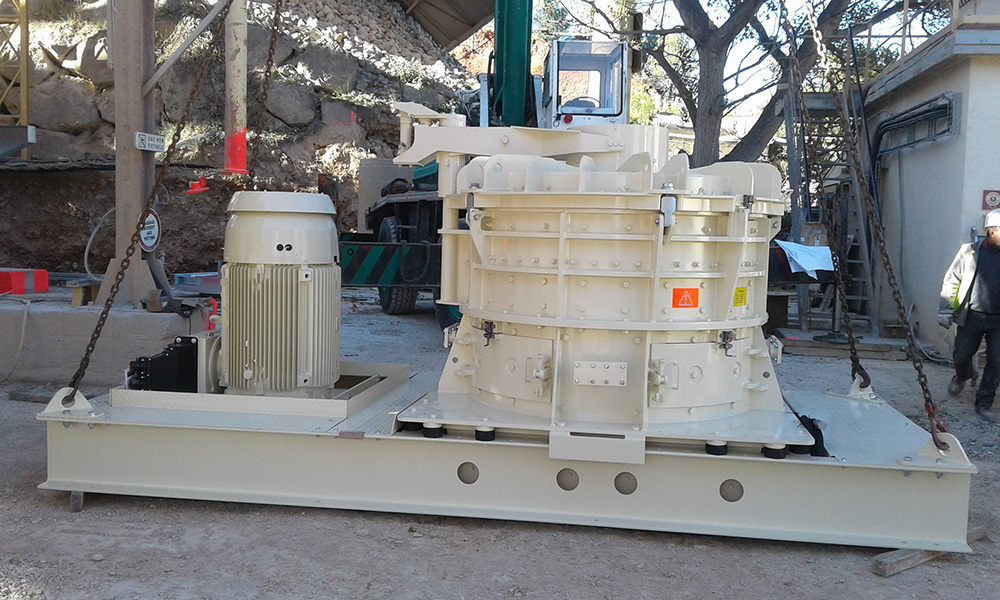
Regarding the use of autonomous machines in quarrying, Bernabé says: “In our industry, the daily work performance of employees is the most important ‘equipment’, because production conditions and market requirements change every day and employees can react quickly and agile. In the future, automated machines will be able to help improve quality, safety, health for our employees as well as production performance.”
The CMSE quarry uses software solutions for managing quarry output, and for registering and managing data. Colas says the software helps verify and adjust the performance of each machine in its plant to meet and maintain performance requirements.
A number of measures have been introduced to reduce the environmental impact of day-to-day operations at the quarry. CMSE has invested in equipment that saves waste contaminated by clay. This way, it uses fewer resources – such as water - over the year, while the output remains the same. In addition, some of the loading vehicles and equipment at CMSE already use hybrid technologies.
The site has undertaken to meet the requirements of the UNICEM (National Union of the Quarrying and Construction Materials Industries) Environment Charter for Quarry Industries and has achieved level 4/4 since 2007.
Colas consolidates quarry presence in South-East France
In September 2021 CMSE Carrière de Saint-Colombe quarry owner Colas merged the 13 companies and two establishments that make up its building materials business in the South-East of France region into a single company, CMSE (Carrières & Matériaux Sud-Est).
The new operation has become a major player in the production and recycling of materials in the Auvergne-Rhône-Alpes, Provence-Alpes-Côte d’Azur and Occitanie (Pyrénées-Orientales, Hérault, Gard) regions.
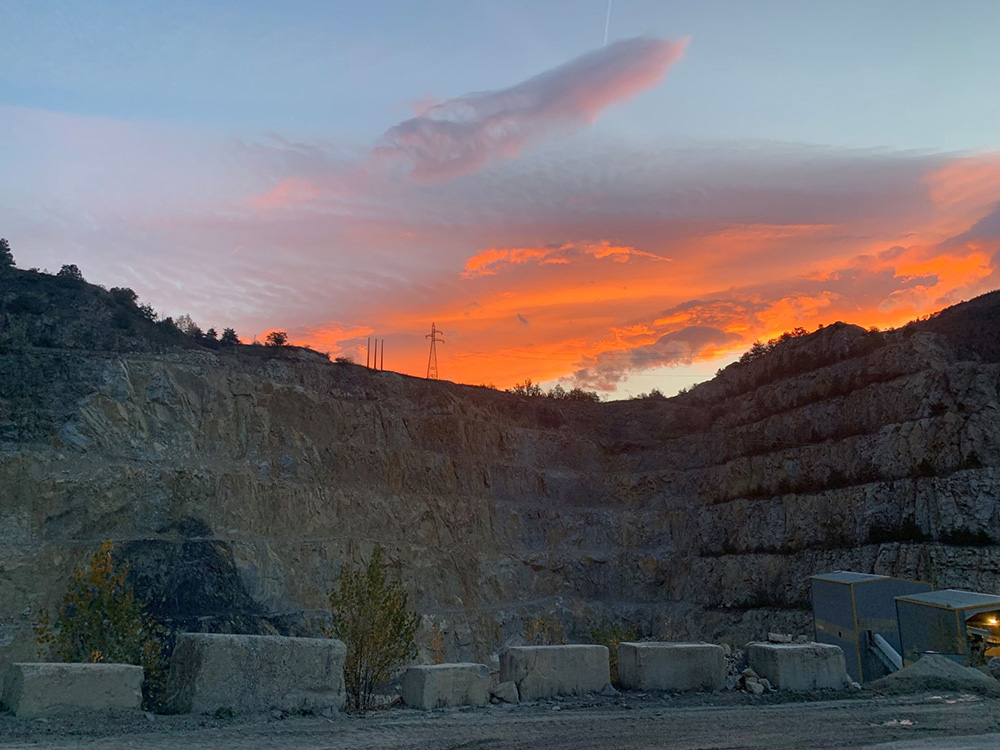
The new entity has 450 employees and is made up of 40 active quarries producing eight million tons of aggregates per year; 20 concrete plants producing 400,000m3 per year; three prefabrication factories that manufacture concrete blocks, floors, beams for the building industry, but also curbs and separation blocks for public works and industry; 13 material recycling platforms; 17 reception sites for inert materials; and 21 sales platforms.
The CMSE operation thus manufactures materials for building, public works and civil engineering which are used in the construction of roads, housing, and more broadly in land development. With this creation, the Colas Group says it intends to assert its position as a major player in quarries, simplify its processes and improve the efficiency of its organisation.
“The creation of CMSE makes it possible to offer our customers a local offer, close to construction sites or industrial units, supported by men and women in the field and attentive, all backed by a solid legal and organisational structure,” says Guillaume Gerbaud, president of CMSE.
Colas relies on a tight international network made up of 478 quarries and gravel pits (of which 79 are jointly owned), 151 emulsions and binder plants, 538 asphalt plants (of which 140 are jointly owned), 192 ready-mix concrete plants and a bitumen production plant (located in Kemaman, Malaysia).
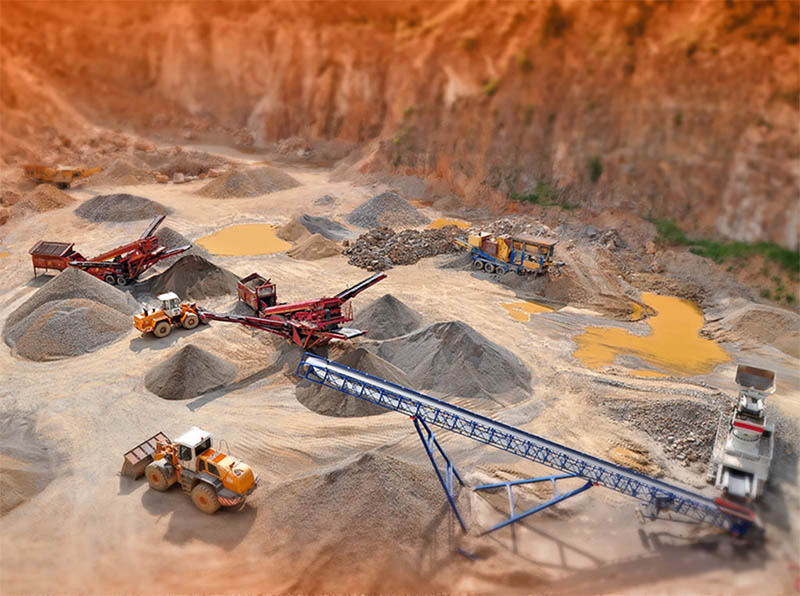
For the year 2020, the Colas Group sold 89 million tonnes of aggregates (excluding reclaimed asphalt pavement), 2.1 million tonnes of emulsions and binders, 35 million tonnes of asphalt mix and 2.6 million cubic metres of ready-mix concrete. Bitumen production represented 1.0 million tonnes.
Colas also has a group share of 2.7 billion tonnes of authorised reserves of aggregates (i.e., 30 years of sales, in terms of group share), with, in addition, 1.3 billion tonnes of potential reserves as an additional group share.
In 2020, Colas recycled and recovered 7.8 million metric tons of materials. This represents almost 9% of its total aggregate production and worldwide savings equivalent to the production of 28 medium-sized Colas quarries.
The amount of recycled materials declined significantly in 2020, down 1.4 million metric tons, a 16% reduction relative to 2019. Colas says this trend is reflected in the following regions in particular: France (down 22%), United States (down 9%), EMEA (down 9%) and Canada (down 6%). These reductions were mainly due to a significant decline in activity in these geographical regions as a result of the COVID-19 crisis.

